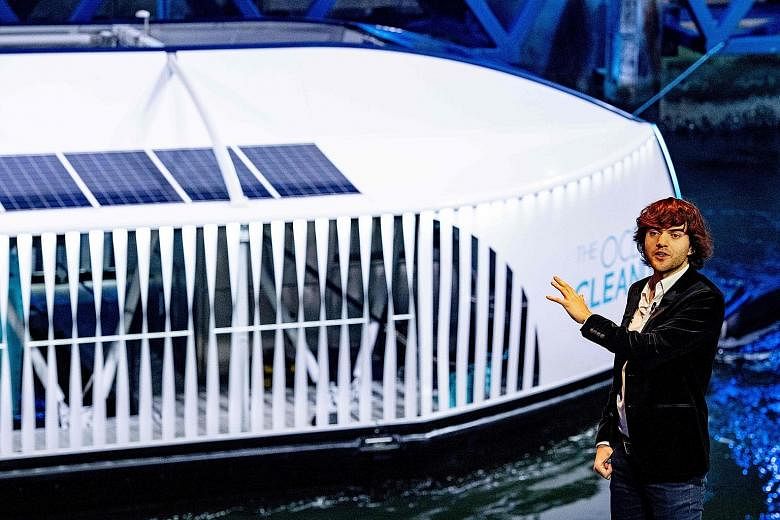ROTTERDAM • A Dutch foundation devoted to fighting plastic pollution in the world's oceans has unveiled a new device designed to stop it from reaching the sea in the first place: by collecting and cleaning plastic waste from major rivers.
Ocean Cleanup, a non-governmental organisation best known for its attempts to collect and clean plastic from the "Great Pacific Garbage Patch", last Saturday said it has been testing a system based on similar principles - a floating barrier to collect plastic passively - for use in rivers.
"To solve the plastic pollution problem, we need to do two things: We need to clean up what's already in the oceans, for that we of course have the Ocean Cleanup System," founder Boyan Slat, 25, said.
"Now we also hope to tackle the other side of the equation: Preventing more plastic from reaching the ocean in the first place."
The foundation's ocean system uses a large floating boom to collect rubbish. After initial setbacks and adjustments to the system, Ocean Cleanup reported earlier this month that the device managed to pick up plastic from the high seas for the first time.
The river version, called the Interceptor, consists of a vessel that is anchored to a riverbed while its floating arms - which leave space for animals and river traffic to pass, the group says - divert waste into its collection system.
The system has already been tested in rivers in Jakarta and in Klang, Malaysia, the group said.
Two more are planned for Can Tho in Vietnam's Mekong Delta, and Santo Domingo in the Dominican Republic.
The group said each device is capable of extracting thousands of kilograms of detritus per day. Mr Slat said that 1 per cent of rivers are responsible for 80 per cent of the pollution in the world's seas. That makes finding a solution to the problem of plastic pollution emanating from rivers "quite achievable", he said.
REUTERS

